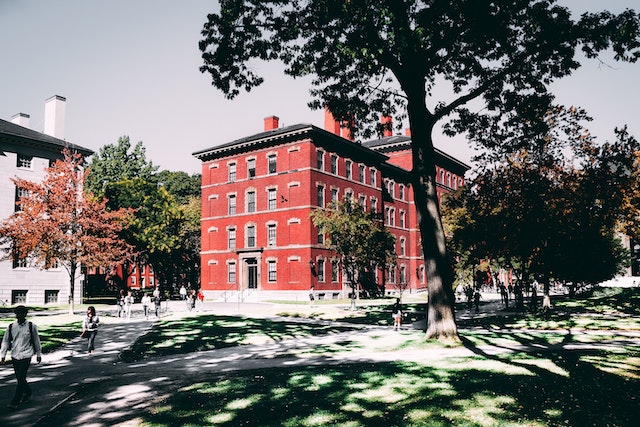Introduction:
John Jay College of Criminal Justice is one of the most prestigious institutions of higher learning in the United States, with a long and storied history. Established in 1964, the college has a proud tradition of excellence in educating students in the field of criminal justice. Located in the heart of New York City, John Jay College has a diverse student body, world-renowned faculty, and a commitment to social justice that sets it apart from other institutions of higher learning. In this blog post, we will explore some of the fun and interesting facts about John Jay College of Criminal Justice.

The History of John Jay College
John Jay College of Criminal Justice was founded in 1964 as the College of Police Science. It was established as part of the City University of New York (CUNY) system to address the growing need for education and training in the field of criminal justice. The college was named after John Jay, one of the Founding Fathers of the United States, who was also the first Chief Justice of the Supreme Court. Jay was a strong advocate for justice and law enforcement, and his name is a fitting tribute to the college’s mission.
Over the years, John Jay College has grown and expanded its programs to meet the changing needs of the criminal justice system. Today, the college offers undergraduate and graduate programs in criminal justice, forensic psychology, and public administration. It also has research centers that focus on a variety of issues related to crime and justice, including the Center for Cybercrime Studies and the Research and Evaluation Center.
The Campus of John Jay College
The campus of John Jay College of Criminal Justice is located in the heart of New York City, just a few blocks from Times Square. The college has a modern, state-of-the-art campus that spans an entire city block. The campus features a number of buildings, including the Haaren Hall, which houses classrooms, offices, and the college’s library.
One of the most impressive features of the John Jay College campus is the building known as “The Eye”. The Eye is a 13-story building that houses classrooms, offices, and state-of-the-art laboratories. It was designed to be a symbol of the college’s commitment to justice and social responsibility. The building features a unique design that allows natural light to enter the building, symbolizing the transparency and openness of the college.
The Faculty of John Jay College
The faculty of John Jay College of Criminal Justice is made up of world-renowned experts in the field of criminal justice. The college has a diverse faculty that includes scholars, practitioners, and researchers. Many of the faculty members at John Jay College are recognized leaders in their fields and have made significant contributions to the criminal justice system.
One of the most notable faculty members at John Jay College is James B. Jacobs, who is the Warren E. Burger Professor of Law and Director of the Center for Research in Crime and Justice. Professor Jacobs is a leading expert on criminal law and procedure, and has written extensively on issues related to crime, justice, and the law. He is also the author of several books, including “The Eternal Criminal Record” and “New York Murder Mystery: The True Story Behind the Crime Crash of the 1990s.”
The Student Life at John Jay College
The student life at John Jay College of Criminal Justice is vibrant and diverse. The college has a student body of over 15,000 students, who come from all over the world. The college has a number of student clubs and organizations that offer students the opportunity to get involved and make a difference.
One of the most popular student organizations at John Jay College is the Criminal Justice Society. The Criminal Justice Society is a student-run organization that provides opportunities for students to engage with the criminal justice system outside of the classroom. The society organizes field trips to correctional facilities, courtrooms, and other criminal justice agencies to give students a firsthand look at the workings of the criminal justice system. The society also hosts guest speakers and career fairs to help students explore career opportunities in the criminal justice field.
In addition to the Criminal Justice Society, John Jay College has a number of other student clubs and organizations, including the Black Student Union, the Latinx Student Association, and the Asian Pacific Islander Desi American Club. The college also has a thriving athletic program, with teams in basketball, volleyball, soccer, and other sports. The athletic program at John Jay College is known for its commitment to academic excellence and social justice, and many of the athletes at the college are also involved in community service projects.
John Jay College Alumni
John Jay College of Criminal Justice has a proud tradition of producing successful alumni who have made significant contributions to the criminal justice system and beyond. Many of the college’s alumni have gone on to become leaders in their fields, including law enforcement, public policy, and academia.
One of the most notable alumni of John Jay College is Michael Bloomberg, the former Mayor of New York City and founder of Bloomberg LP. Bloomberg graduated from John Jay College in 1964 with a degree in Political Science. Other notable alumni of the college include Juan Gonzalez, a Pulitzer Prize-winning journalist, and Preet Bharara, a former United States Attorney for the Southern District of New York.
Conclusion:
John Jay College of Criminal Justice is a unique and exciting institution of higher learning that offers students the opportunity to explore issues related to crime and justice in a dynamic and engaging environment. From its rich history to its state-of-the-art campus, world-renowned faculty, and vibrant student life, John Jay College has a lot to offer. Whether you are a student, faculty member, or alum, there is something for everyone at John Jay College of Criminal Justice.

